Are You Looking For a Solution To Your Achilles Tendon Pain In Benfleet Essex?
Conveniently located in Benfleet Essex
297 High Road Benfleet Essex SS7 5HA
Free Parking Available
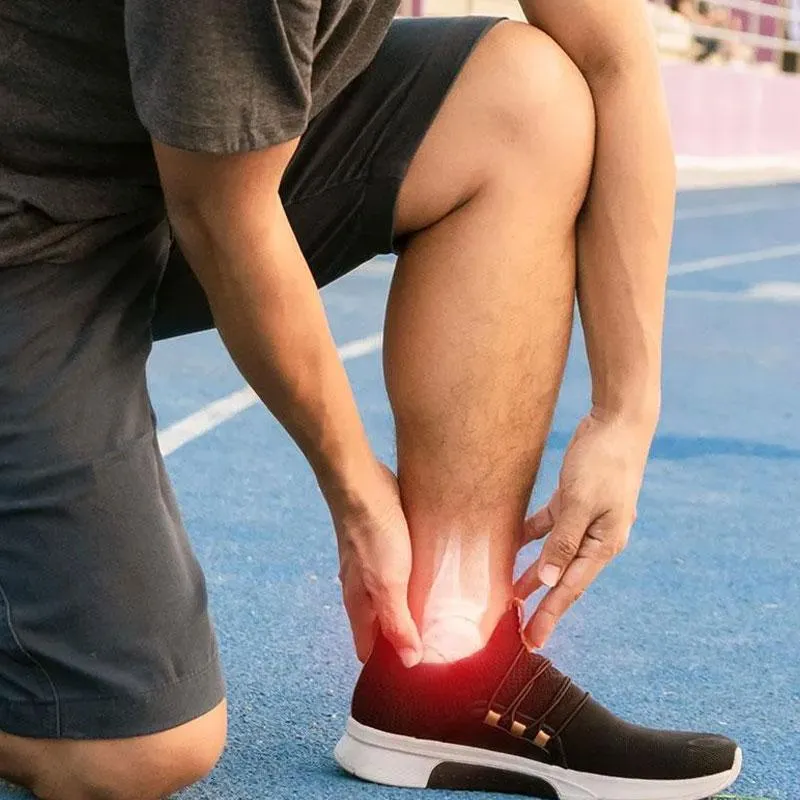
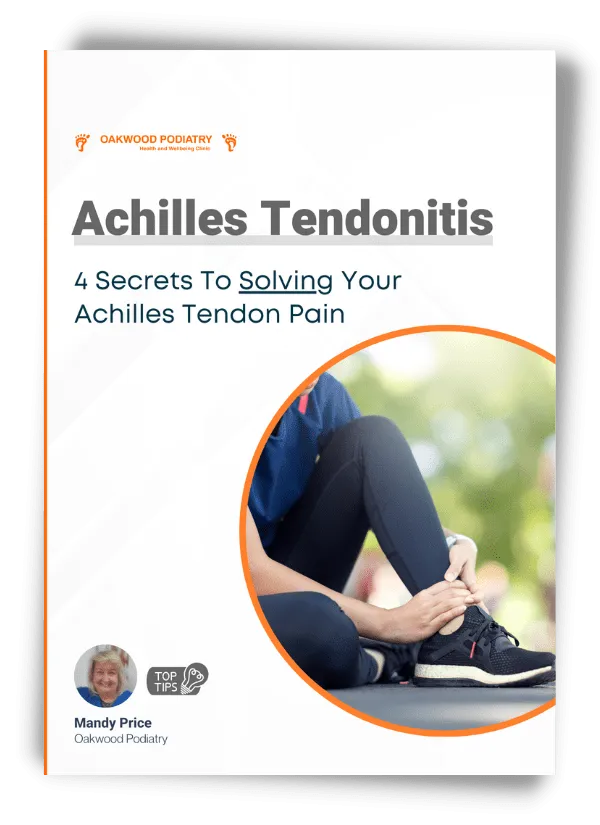
Download Your FREE Achilles Tendon Information Pack:
“4 Secrets To Solving Your Achilles Tendon Pain”
Click the button below to get your FREE Report
Does Any of This Sound Familiar?
Do you experience pain in your Achilles when you get up
in the morning or after sitting for a while?
Have you visited multiple clinics, but still can't find relief from your Achilles Tendonitis?
Have you invested a lot of money in treatment or orthotics that didn't fix your Achilles tendonitis pain?
Do you avoid walking because of the anticipated pain in your Achilles tendon?
Has it been recommended to you to receive an injection
as the next step for your Achilles tendonitis?
"Have you started to worry that you will never get rid of your Achilles tendonitis and may never be able to do the things you love?"
If you answered YES to any of the above, you're not alone. At Oakwood Podiatry we hear stories like this every single day and we know EXACTLY how to help fix your Achilles tendonitis.
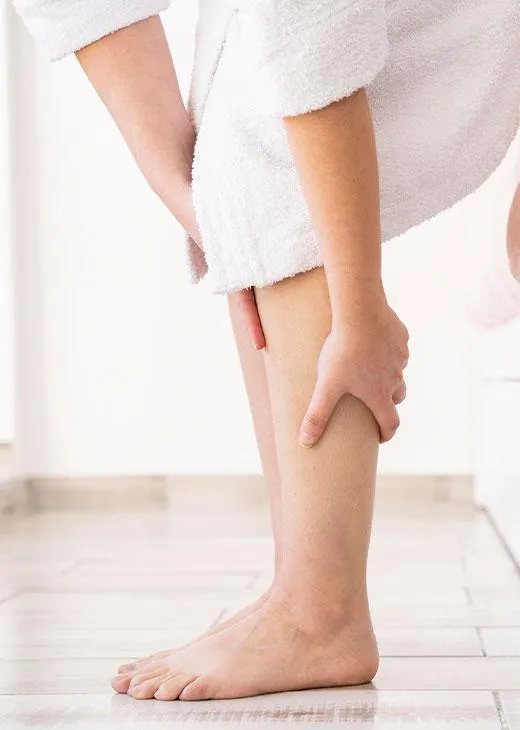
Experts In Podiatry
Benfleet Essex
Still Feeling A Little Confused About Your Condition And Don't Know What To Do?
#1 Option (👍 most popular)
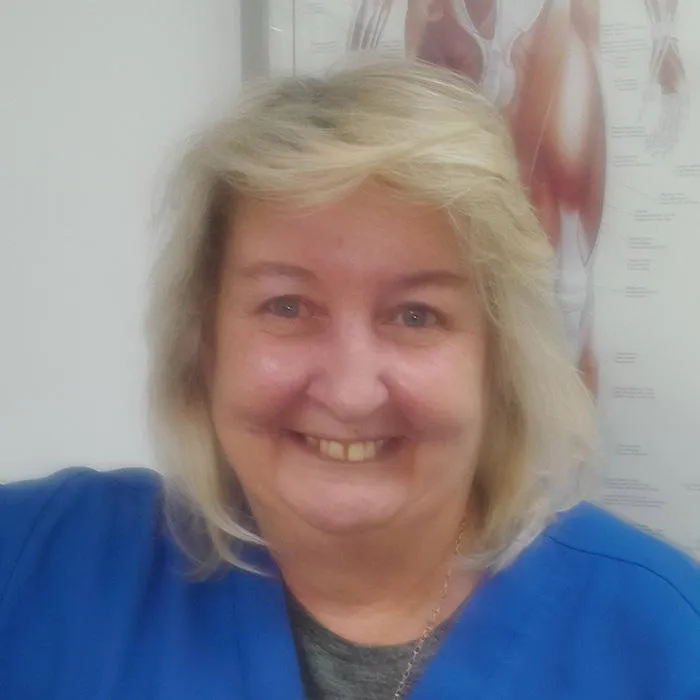
#2 Option - Send Us a Message

#3 Option - Book Appointment

What Causes Achilles Tendonitis... And Why is Achilles Pain Not Getting Better?
Achilles tendonitis is a prevalent overuse injury that occurs due to repetitive stress on the Achilles tendon, which connects the calf muscle to the heel bone.
Symptoms of Achilles tendonitis include pain, tenderness, swelling, stiffness, and reduced range of motion in the back of the ankle.
This condition is most commonly observed in athletes, particularly runners, and often develops as a result of sudden increases in the intensity or duration of physical activity.
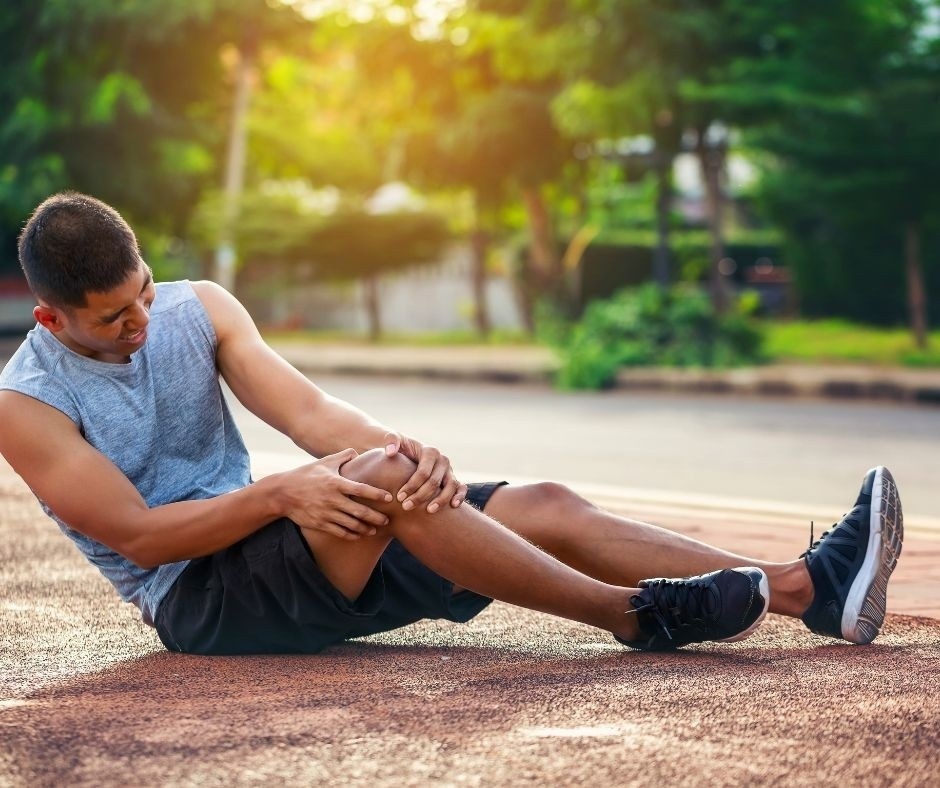
Frustrated With Your Achilles Tendonitis?

Not sure who to ask?
Not sure what to do next?
Not sure who can help?
Please fill out the form below and chat with one of our team members about your right next step
The Oakwood Podiatry Achilles Tendonitis Pain Relief Programme
Step 1 - Evaluation and Diagnosis
In the initial stage, a physiotherapist will assess your symptoms, medical history, and perform a physical examination.
They may also order diagnostic tests like imaging (such as X-rays or ultrasound) to evaluate the severity of the condition and confirm the diagnosis of Achilles tendonitis.
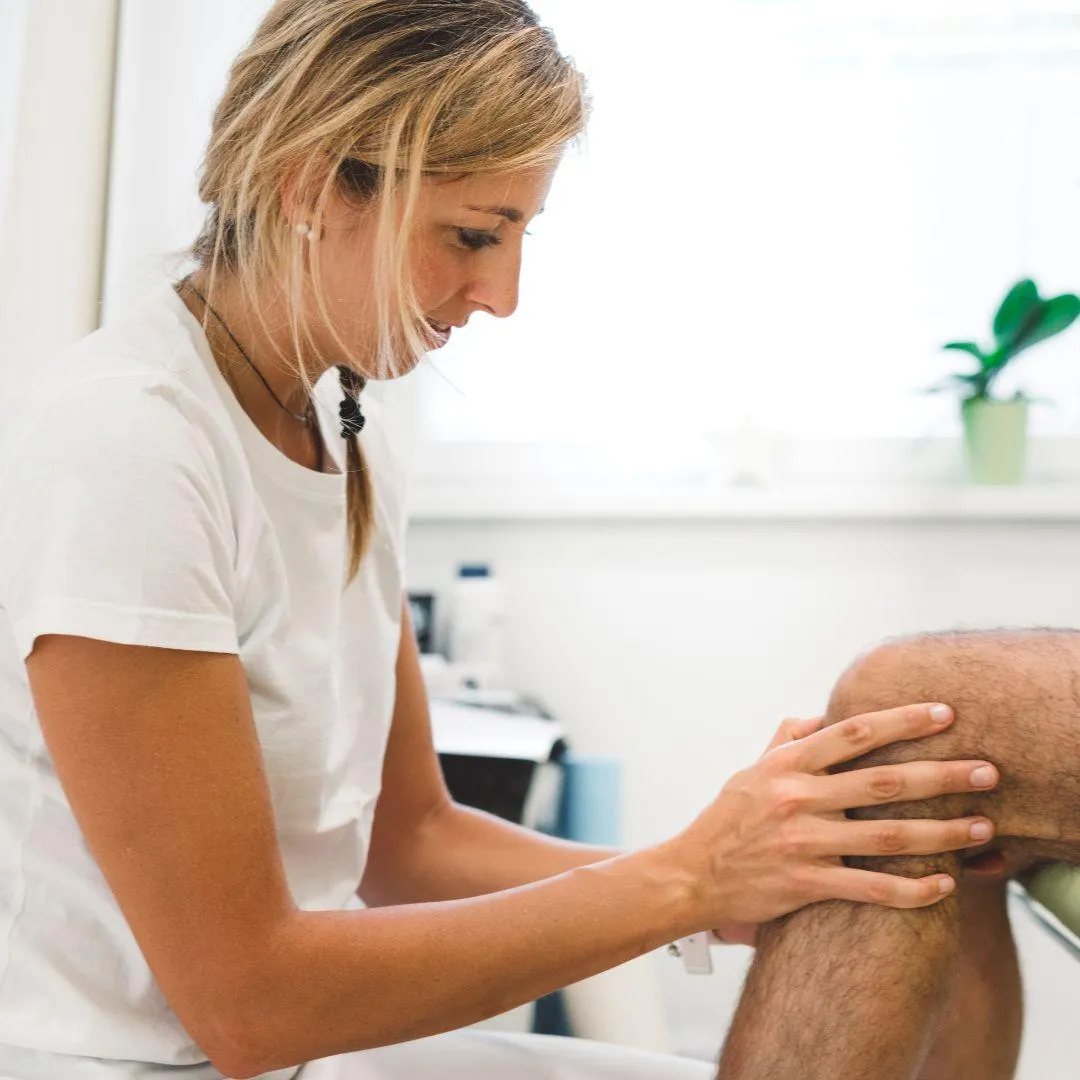
Step 2 - Conservative Treatment
The next stage typically involves non-surgical or conservative treatment options. This may include:
Rest and activity modification: Reducing or avoiding activities that aggravate the condition.
Ice therapy: Applying ice packs to reduce pain and inflammation.
Nonsteroidal anti-inflammatory drugs (NSAIDs): Medications like ibuprofen to alleviate pain and inflammation.
Exercise therapy: Stretching and strengthening exercises, as well as other modalities like ultrasound or laser therapy, to promote healing and improve tendon flexibility.
Orthotic devices: Using shoe inserts or custom orthotics to provide support and reduce strain on the Achilles tendon.
Heel lifts: Elevating the heel to relieve tension on the tendon.
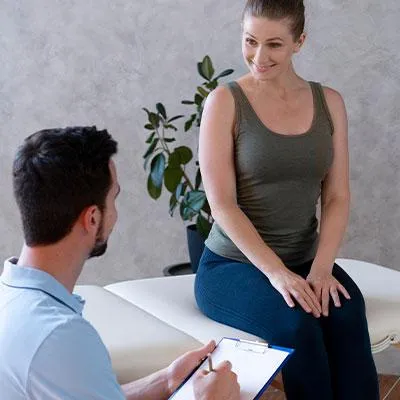
Step 3 - Recovery
Our goal is to provide treatments that are gentle and progressive, allowing you to recover from Achilles tendonitis and resume your favourite activities as quickly as possible, without experiencing any pain.
We want to help you overcome the limitations that your Achilles tendonitis pain has imposed on you, so that you can return to the things you love doing.
Also we don't just want to eliminate your Achilles tendonitis pain, we want to provide you with the knowledge and resources necessary to prevent it from returning in the future.
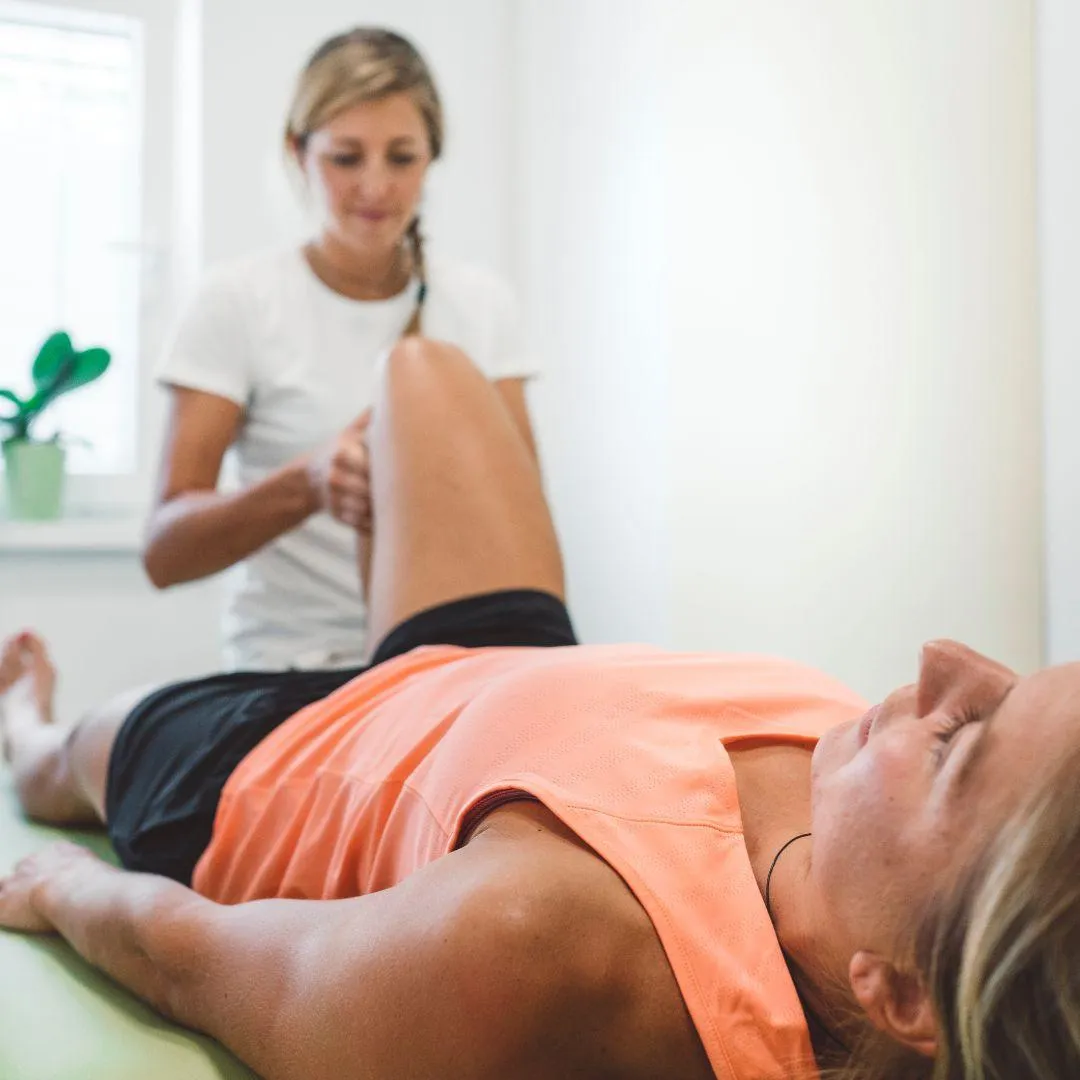
Is The Achilles Tendonitis Pain Relief Programme Right For You?
Our team of physiotherapists at Oakwood Podiatry are experts in Achilles Tendonitis treatment, helping 1000's of patients get back to walking and running with relief from Achilles Tendonitis.
Here’s just a few of the things our physio team can do for you:
We can tell you on Day ONE “what you have, why you have it and how to get rid of it”
We can help you find out what’s really going on, and get to the root cause of your Achilles Tendonitis once and for all – often inside 20 minutes
We can help you to enjoy living with more energy each day
We can help you put an end to taking all of those painkillers that are no good for your health long-term
We can help you avoid surgery – and painful injections
We can help you keep out of the doctor’s waiting room or from making repeat visits only to be given more pills!
We can help you get back to enjoying quality time with family and friends that Achilles Tendonitis has stolen from you
We can help you keep active and live a full life free from the curse of Achilles Tendonitis.
What's next? You've got a decision to make - another month gone by without solving your Achilles Tendonitis problem, or are you ready to get back to doing the things you love?
Is Achilles Tendonitis Slowing You Down? Take Us Up on One of Our Free Options
Option #1 (👍 most popular)

Option #2


From Consultation to Treatment
What to Expect at Your First Podiatry Visit
We're excited to see you at your appointment! We want to make sure you feel comfortable and well-informed, so don't hesitate to ask us any questions about our treatments and our clinic. Our goal is to help you get back to living your life free of pain, so let's work together to make that happen!
Discuss your foot health goals
Complete foot examination
Discover your options
Start a custom treatment plan


4 Reasons To Choose Oakwood Podiatry

Specialised Expertise: Our clinic offers specialised care from highly-trained podiatrist in various fields like sports rehab and chronic pain management.
Comprehensive Approach: We provide holistic treatment plans combining manual therapy, exercises, and cutting-edge technology for a well-rounded approach.
Cutting-Edge Facilities: Equipped with state-of-the-art facilities and advanced equipment to support patients' recovery.
Proven Track Record: Our clinic's reputation is built on successful patient outcomes and positive feedback, fostering a supportive environment for rehabilitation.
Frequently Asked Questions About Achilles Tendonitis
What is Achilles tendonitis?
Achilles tendonitis is the inflammation of the Achilles tendon, which is the large tendon that connects the calf muscles to the heel bone. It is typically caused by overuse, repetitive strain, or sudden injuries.
What are the common symptoms of Achilles tendonitis?
Common symptoms of Achilles tendonitis include pain and stiffness in the back of the heel, swelling, tenderness, and difficulty walking or participating in physical activities. The pain may worsen with activity and improve with rest.
How is Achilles tendonitis diagnosed?
Achilles tendonitis is usually diagnosed through a physical examination by a healthcare professional. They may also review your medical history and may order imaging tests, such as an ultrasound or MRI, to confirm the diagnosis and assess the extent of the injury.
What are the treatment options for Achilles tendonitis?
Treatment options for Achilles tendonitis may include:
Rest and activity modification: Limiting or avoiding activities that exacerbate the symptoms and giving the tendon time to heal.
Ice and heat therapy: Applying ice packs to reduce inflammation and using heat therapy to promote blood flow and relaxation.
Pain medications: Over-the-counter pain relievers or prescription medications can help manage pain and reduce inflammation.
Physical therapy: Specific exercises and stretches to strengthen the calf muscles, improve flexibility, and promote healing of the tendon.
Orthotic devices: The use of shoe inserts or heel lifts to provide support and reduce strain on the Achilles tendon.
Night splints: Wearing a splint at night to keep the foot in a neutral position, which helps stretch the calf muscles and relieve morning stiffness.
Extracorporeal Shockwave Therapy (ESWT): A non-invasive treatment that uses shockwaves to stimulate healing in the affected area.
How long does it take to recover from Achilles tendonitis?
Yes, there are several self-care measures that can help manage Achilles tendonitis symptoms, including:
- Resting and avoiding activities that worsen the pain.
- Applying ice packs to reduce inflammation and pain.
- Using over-the-counter pain relievers to alleviate discomfort.
- Performing gentle stretching exercises as recommended by a healthcare professional.
- Wearing appropriate footwear with good arch support and cushioning.
- Gradually increasing activity levels and avoiding sudden increases in intensity.
- Maintaining a healthy lifestyle, including regular exercise, a balanced diet, and adequate rest and recovery.
Can surgery be required for Achilles tendonitis?
In some cases, when conservative treatments fail to improve symptoms or for severe cases of Achilles tendonitis, surgical intervention may be considered. The specific surgical procedure will depend on the individual's condition and the recommendations of a healthcare professional.
How can Achilles tendonitis be prevented?
- Gradually increase the intensity and duration of activities to avoid overuse.
- Warm up before exercise and cool down afterward.
- Use proper technique and form during exercise or physical activities.
- Wear appropriate footwear that provides good support and cushioning.
- Avoid sudden changes in intensity or training surfaces.
- Listen to your body and take rest days when needed.
- Maintain a healthy weight to reduce stress on the tendons.
Please note that these FAQs provide general information and should not replace personalised advice from a qualified healthcare professional. It is important to consult with a trusted physiotherapist to assess your individual case and determine the most suitable treatment plan for your Achilles tendonitis.
Frustrated With Your Achilles Tendonitis?

Not sure who to ask?
Not sure what to do next?
Not sure who can help?
Please fill out the form below and chat with one of our team members about your right next step
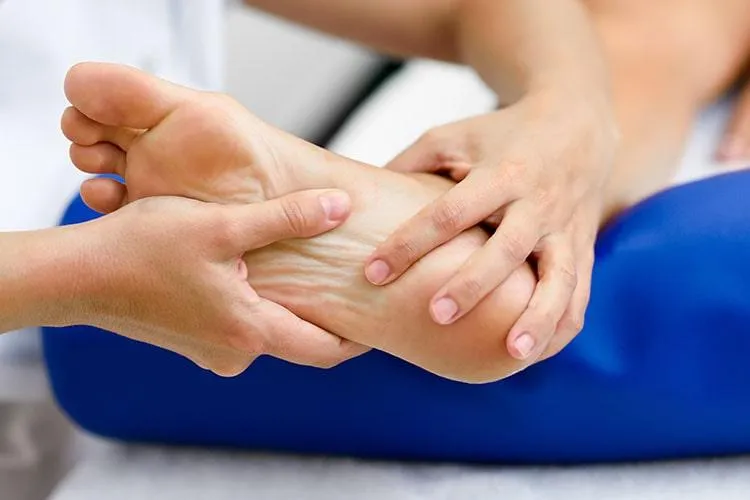
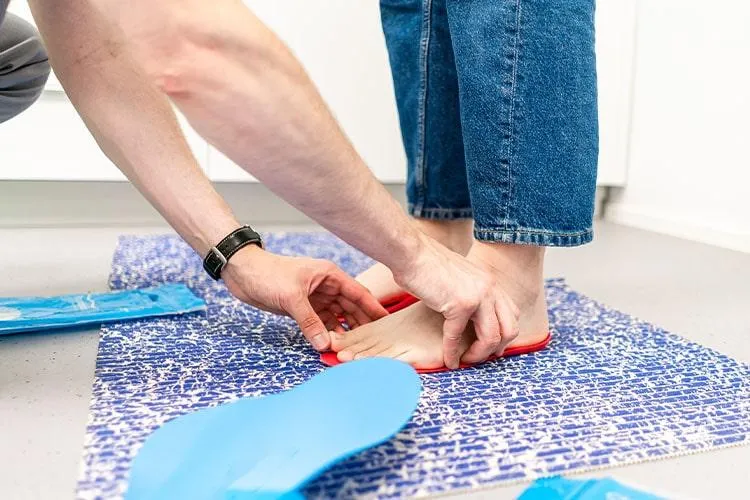
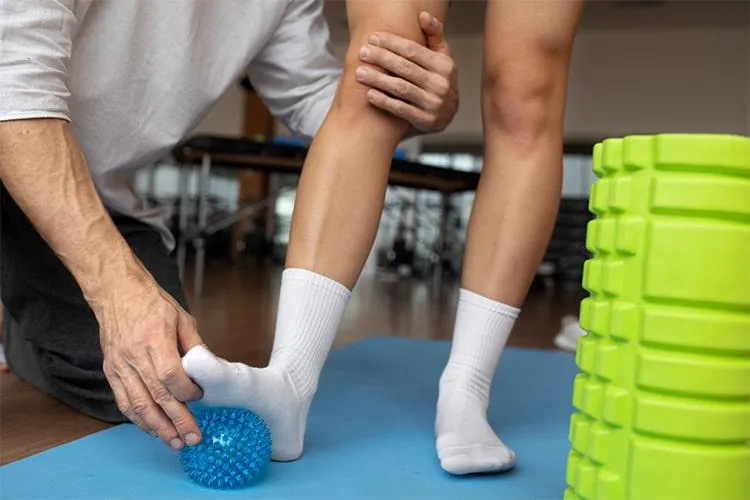
Where To Find Oakwood Podiatry

If you have any questions before scheduling an appointment or for general inquiries, please use the contact us button below. Our team will promptly reach out to assist you.
Opening Hours
Monday: 9am - 5pm
Tuesday: 9am - 5pm
Wednesday: 9am - 5pm
Thursday: 9am - 5pm
Friday: 9am - 5pm
Saturday: Closed
Sunday: Closed

